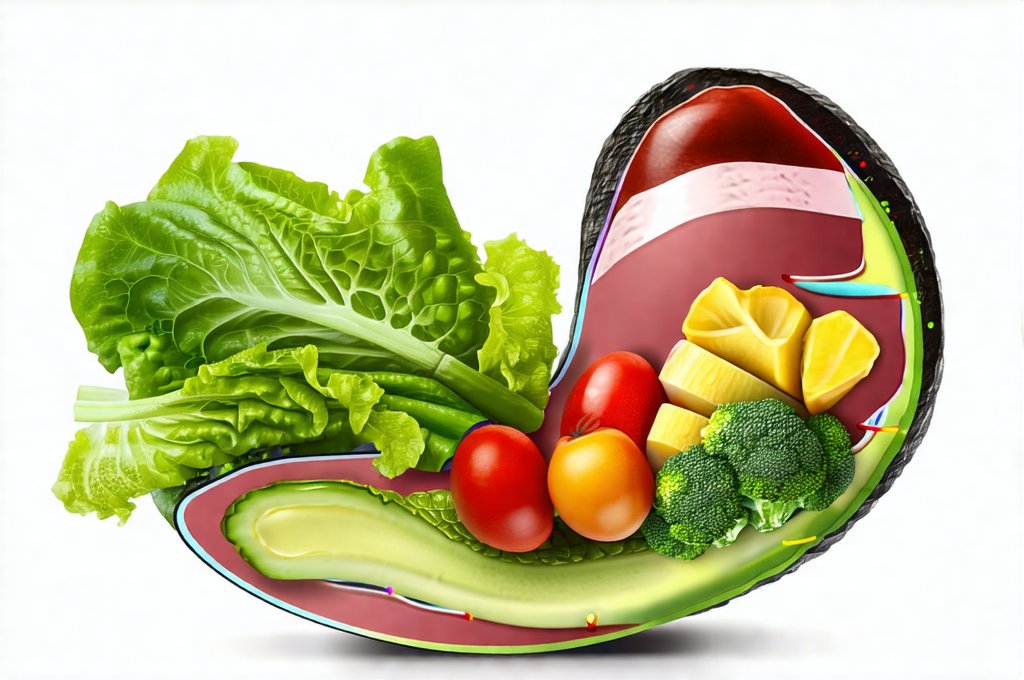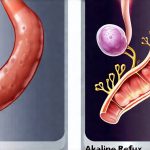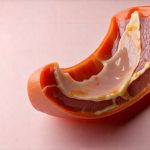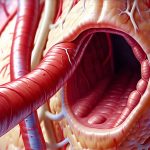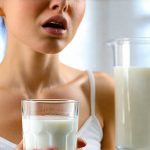Gastroesophageal reflux disease (GERD), commonly known as acid reflux, impacts millions worldwide, causing discomfort ranging from mild heartburn to debilitating pain and even serious complications if left unmanaged. Many seeking relief explore alternative dietary approaches beyond conventional treatments, often drawn to the allure of alkaline diets promising a natural solution. The idea centers around neutralizing stomach acid through food choices, aiming to reduce irritation of the esophagus. However, the science behind this claim is complex, and understanding the true relationship between alkalinity, diet, and GERD requires careful examination, separating popular misconceptions from evidence-based information. This article will delve into the principles of alkaline diets, their potential impact on GERD symptoms, and what current research suggests about their efficacy, providing a nuanced perspective for those considering this approach to symptom management.
The appeal of an alkaline diet isn’t just about neutralizing acid; it often taps into broader health trends promoting whole foods and reduced processed food intake – undeniably positive steps regardless of the specific dietary philosophy. It’s vital to remember that the human body has remarkably robust self-regulating mechanisms designed to maintain a precise pH balance, making dramatically altering internal acidity through diet extremely difficult and potentially unnecessary. While certain foods can influence urine pH (often cited as evidence for alkaline diets), this doesn’t necessarily translate to changes in stomach acid levels or esophageal health. We will explore the intricacies of these concepts, focusing on how dietary choices can support overall digestive health without relying on unsubstantiated claims about alkalinity and GERD relief. Understanding the connection between gerd and nausea is important for proper management of this condition.
Understanding Alkaline Diets
An alkaline diet isn’t a specific prescribed eating plan but rather a way of eating that emphasizes foods believed to leave an “alkaline residue” in the body after digestion, metabolism and absorption. The core principle revolves around the acid-ash hypothesis, which suggests that consuming certain foods increases acidity within the body, contributing to inflammation and disease, while alkaline foods promote health. Foods are categorized based on their potential post-digestion effect on pH levels, rather than their actual inherent acidity or alkalinity before consumption. For example, lemons, despite being acidic fruits, are often considered alkaline because of how they’re metabolized in the body.
Typical recommendations for an alkaline diet include a significant increase in fruit and vegetable intake – particularly leafy greens, melons, and citrus fruits – while limiting acid-producing foods like meat, dairy, grains, processed foods, sugar, and caffeine. Proponents believe this shift reduces the burden on the kidneys to neutralize acidity and promotes better overall health. It’s important to note that even “acidic” foods play vital roles in a balanced diet, providing essential nutrients, so restrictive elimination without careful consideration can be detrimental. The effects of high-fat diets should also be considered when planning your diet.
The premise of alkaline diets often overlooks the body’s sophisticated buffering systems. Our lungs and kidneys work tirelessly to maintain blood pH within a narrow range (around 7.35-7.45), regardless of dietary intake. Stomach acid is essential for digestion, activating enzymes and breaking down food, and attempting to neutralize it completely can actually hinder this process and lead to malabsorption. Therefore, while focusing on nutrient-rich foods is always advisable, equating alkalinity with health or GERD relief is an oversimplification.
GERD: Beyond Acidity
GERD isn’t simply about “too much acid;” it’s a complex condition involving multiple factors that compromise the lower esophageal sphincter (LES), the muscular valve between the esophagus and stomach. This valve normally prevents stomach contents from flowing back up into the esophagus, but when weakened or relaxed inappropriately, acid reflux occurs. Several things can contribute to LES dysfunction, including: – Hiatal hernia – a condition where part of the stomach protrudes through the diaphragm – Obesity – increased abdominal pressure weakens the LES – Certain medications – some drugs can relax the LES – Lifestyle factors – smoking, alcohol consumption, and large meals can exacerbate symptoms
The burning sensation associated with GERD is caused by stomach acid irritating the sensitive lining of the esophagus. However, it’s not always excessive acid production that’s the problem; sometimes, increased sensitivity of the esophageal lining (hypersensitivity) plays a significant role. This means even normal amounts of acid can cause discomfort. In these cases, simply reducing acidity through diet may offer limited relief. Furthermore, non-acid reflux – where stomach contents other than acid come back up – is becoming increasingly recognized as a contributor to GERD symptoms, challenging the notion that alkalinity is the sole solution. Understanding gerd and sleep apnea can also help you manage your condition holistically.
Dietary Strategies for GERD Management
While an alkaline diet doesn’t necessarily address the root cause of GERD, making thoughtful dietary choices can significantly alleviate symptoms and support overall digestive health. The focus should be on identifying and avoiding individual trigger foods – those that specifically worsen your reflux – rather than adhering to a rigid alkaline protocol. Common triggers include: – Fatty foods – slow stomach emptying increases pressure – Spicy foods – can irritate the esophagus – Caffeine – relaxes the LES – Chocolate – also relaxes the LES – Alcohol – weakens the LES – Mint – surprisingly, can relax the LES
A more effective approach involves adopting a personalized dietary plan that prioritizes smaller, more frequent meals, avoiding late-night eating, and maintaining a healthy weight. Fiber-rich foods can aid digestion and reduce bloating, while staying adequately hydrated helps prevent constipation, which can increase abdominal pressure. Mindful eating, paying attention to portion sizes and chewing thoroughly, also plays a crucial role in minimizing reflux. Remember that dietary changes are most effective when combined with other lifestyle modifications like elevating the head of your bed and avoiding smoking. It’s important to understand the connection between gerd and hiccups as well, as these symptoms can often occur together.
The Role of Specific Foods
Certain foods may offer more direct support for GERD management beyond simply avoiding triggers. For example, ginger has anti-inflammatory properties and can help soothe digestive upset. Aloe vera juice (ensure it’s specifically formulated for internal consumption) may provide temporary relief by coating the esophagus, but research is limited and caution is advised. Foods rich in melatonin, like tart cherries or kiwis, could potentially reduce inflammation and improve sleep quality, indirectly benefiting GERD management as poor sleep can worsen symptoms.
It’s vital to approach these “superfoods” with realistic expectations. They are supportive additions to a balanced diet but shouldn’t be viewed as cures. Furthermore, individual responses vary greatly; what works for one person may not work for another. Keeping a detailed food diary and tracking your symptoms can help identify which foods provide relief and which exacerbate your reflux. This personalized approach is far more effective than blindly following generalized dietary advice.
Beyond Diet: Holistic Management of GERD
It’s crucial to remember that GERD often requires a multifaceted approach, encompassing lifestyle modifications, dietary adjustments, and potentially medical intervention. If symptoms are persistent or severe, consulting with a healthcare professional is essential. Medications like proton pump inhibitors (PPIs) and H2 receptor antagonists can effectively reduce acid production, but long-term use should be carefully monitored due to potential side effects.
Other helpful strategies include: – Stress management – stress can worsen GERD symptoms – Exercise – regular physical activity promotes overall health and digestion – Weight management – losing excess weight reduces abdominal pressure – Avoiding tight clothing – constricting garments can increase abdominal pressure Addressing underlying medical conditions that contribute to GERD, such as hiatal hernia, may also be necessary. Ultimately, managing GERD effectively requires a collaborative approach between you and your healthcare provider, tailored to your individual needs and circumstances. Consider if msg sensitivity symptoms could be contributing to your digestive issues. Also, the link between gerd and asthma is worth exploring for a more complete understanding of potential connections.

